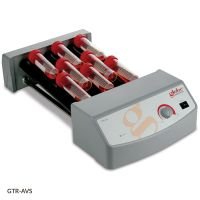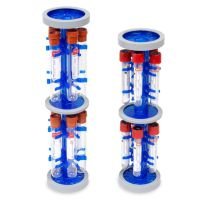Understanding Different Pipette Tips and Their Applications

Exploring Various Pipette Tips and Their Uses
A wide range of Pipette Tips is extensively used in medical and pharmaceutical laboratories for diverse applications, from drug development to critical vaccine production.
However, their development is crucial to ensure they are suitable for critical tasks. This is why the quality of this lab equipment is so important. It's essential to source these instruments from a reputable supplier. For example, opt for a pipette tips supplier that is well-known in the market and has positive reviews from customers.
In this blog, we will explore the different types of pipette tips in detail and discuss the specific applications of some of them. Let’s dive in.
Non-Sterile and Sterile Tips
Given that every molecule and drop is vital in the development of medical drugs, any deviation in the amount during pipetting could lead to undesirable outcomes. This can compromise the results of molecular interaction, spectrophotometric, and chromatographic analyses. Moreover, the tip material must not introduce contamination to the sample.
This is why sterile tips are considered a more reliable and efficient option for pipetting, yielding better results. However, non-sterile, autoclavable tips are still widely used in labs where contamination is not a significant concern. They are also less expensive than sterile tips.
For optimal results, consider the following factors:
Hand hygiene
Use of Non-Sterile Gloves, Masks, Eyewear
Verify if the tips are autoclavable. While manufacturers of tips ensure their sterilization process through regular quality checks, individual labs may not always test the effectiveness of the autoclaving process.
These Tips Should Be Free of RNase and DNase
It's essential to ensure that the sterile tips you purchase are certified to be free of RNase and DNase. These enzymes are responsible for the degradation of DNA and RNA, which can be detrimental. Therefore, choose tips from manufacturers who guarantee that their tips are free of RNase and DNase. Below are some quality tips.
Filter Tips
Even trace amounts of DNA from previous samples can contaminate results and increase the risk of contamination. Using filter tips when handling liquids that could affect your pipette or the outcome is crucial. Here are some types of liquids that should always be pipetted with filter tips to avoid contamination or damage to the pipette:
Strong bases and acids
Infectious samples
Corrosive samples
Application: These tips are ideal for training new lab staff. They help prevent contamination or damage to the pipette’s lower end, making them a safer option than non-sterile tips.
Long Tips
The length of the tips is crucial in preventing cross-contamination. Cross-contamination can occur when the pipette shaft is inserted into a tube for the tip to reach the bottom.
Application: These tips are used to minimize the risk of contamination, making them a preferred choice.
Short Tips
Short Tips offer significant advantages as they provide better ergonomics and allow closer pipetting to the bench.
Application: These tips are commonly used in the medical field, particularly in laboratory applications where sterility is not a critical requirement.
Wide-Bore Tips
Some cellular samples may become damaged when forced through the narrow passages of standard tips. Wide-bore tips should be used to transfer viscous components as their wider orifice reduces flow resistance.
Application: These tips help keep genomic DNA (gDNA) intact, reducing the risk of shearing during pipetting.
Low Retention Tips
Low retention tips offer the most accurate results. They are more precise and consistent than other types while saving critical reagents. However, they are more expensive than standard tips, so it’s important to determine if they are worth the investment for your specific needs.
Application: These tips are beneficial when pipetting solutions with lower surface tension compared to water.
Wrapping Up
Hopefully, this overview has given you a better understanding of the various types of pipette tips and their applications. If you're in need of a reliable laboratory equipment supplier in Canada, consider contacting Clinivex. As a leading lab equipment manufacturer, they supply pipettes and other medical equipment to various countries. For bulk purchases of such equipment, visit their website and reach out to them for quality products.
 info@theclinivex.com
info@theclinivex.com  +1 (877)-861-1996
+1 (877)-861-1996 





